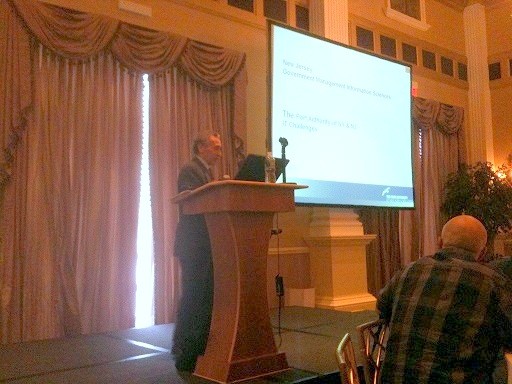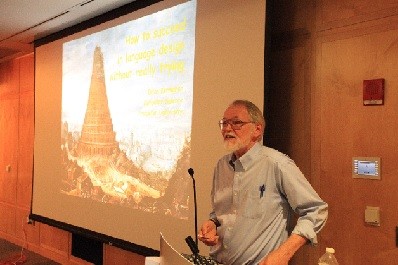The Year in Review: Words of Wisdom That Enriched the NJ Tech Community in 2013, Part 1
A wealth of knowledgeable, captivating speakers and panelists gave insightful advice, provided guidance and enriched the New Jersey tech community in 2013. In this first part of a two-part story, we review some of the ideas and quotes they shared during the first half of the year.
January

John Eley, CEO of Pivot (Jersey City) and serial entrepreneur, told the audience at the NJTC Capital Conference to beware of “friends and family” financing rounds. Said Eley, “I’ve raised money from friends and family … and I’ve had it go well and not so well. I have to tell you, it is more fun when it goes well. You are going to Thanksgiving dinner, and you … have to look someone in the eye and explain … that the $25,000 or $50,000 you expected to turn into $100 million is now at zero. It really takes the stuffing out of you.”
At the Hack Jersey event, organizer Tom Meagher, data editor at Digital First Media’s Thunderdome project, emphasized the gathering’s importance. “This is an opportunity for … two crafts to come together to share ideas,” Meagher told the group. Journalists are good at telling stories, he noted, and programmers are skilled at working with systems and knowing how to get code and data to interact. “Together there is an amazing opportunity to build things better than we could do on our own,” he said.
February
Speaking to a group at a Venture Association of New Jersey luncheon meeting, Genacast Ventures (Philadelphia and New York) investor Gil Beyda said, “When I make an investment … it’s just money. But you are investing a lot more: you are investing your time and … making a commitment to the business. First and foremost, you should be able to convince your friends and family that this is an awesome idea.”

March
Serial tech entrepreneur Heidi Messer, a cofounder of Collective[i] (New York), spoke to the meetup NJ Tech Gals about being a startup entrepreneur. Said Messer, “I think it’s the hardest thing to do, aside from having children. There is no certainty to it and no outcome you can predict.”

Garth Holsinger told tech entrepreneurs at Startup Weekend Madison that innovative ideas can come from humble beginnings. He said, “So I am really championing the dumb. Don’t be afraid to be dumb. It can lead to vast riches and tremendous experiences.”
April

The Port Authority’s Antonio Pollan told attendees at the New Jersey Government Management Information Services conference that social media is a great concern for the agency. “Our employees use it, and it creates a huge challenge from the standpoint of where you draw the line between personal lives and corporate lives. There is always the risk of information leakage,” he said.
At the NJ Tech Meetup, startup community guru Brad Feld commented that government can’t jumpstart a tech startup hub. He said government is “historically a terrible allocator of capital directly to startups. What it should be doing is trying to create a framework that uses the ecosystem available to it to help entrepreneurs nurture each other.”
Rowan University (Glassboro) President Ali Houshmand said higher education — which represents some 15 percent of the U.S. economy — is at a crossroads, squeezed by high costs. “The only way forward that I can see for this segment of the economy to become transformed and much more relevant than it is today is to partner with industry,” he said at an NJTC event on how to make New Jersey a high-tech hub.
May

Speaking to Princeton Tech Meetup in May, computing pioneer Brian Kernighan, who cowrote the seminal book on the language C, discussed “little” languages, including AWK, which he had created. “I believe that AWK survives because there aren’t too many languages that tackle one-line programs well. It had weak competition,” he said.
In a speech to attendees at the May NJ Tech Meetup, Behance founder Scott Belsky told startups not to raise funds too rapidly. “If you raise a lot of money quickly, you are possibly incentivized to keep doing something that you don’t love” anymore, Belsky noted. That can become a problem later on, he said, if your startup isn’t gaining traction and people aren’t taking your calls. If you and your team really love the business, your employees will stay with you even if you are filled with doubt, he said.

